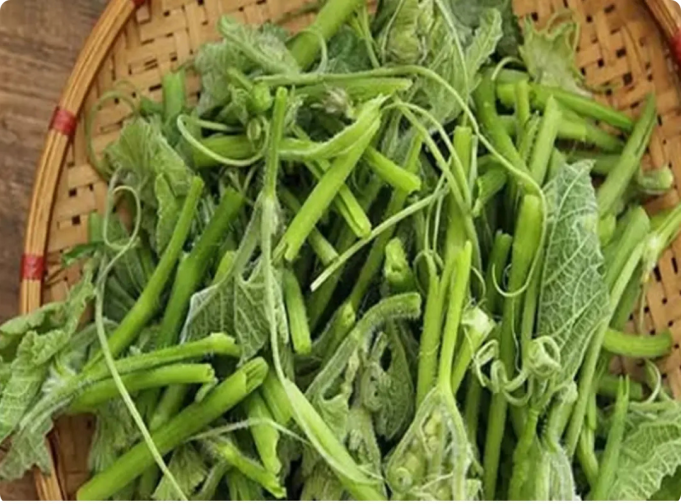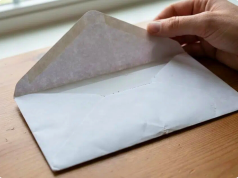You’ve likely seen alarming headlines like:
“These 3 vegetables cause cancer—avoid them now!”
“Stop eating these common veggies or risk your life!”
They grab attention. They spark fear. But more importantly—they often mislead.
While it’s true that certain food practices can increase cancer risk, the idea that specific vegetables are inherently dangerous is misleading and not supported by science. Let’s separate fact from fiction, understand real risks, and learn how to protect your family—with truth, not fear.
❌ The Viral Claim: “These 3 Vegetables Cause Cancer”
A widely shared social media post claims:
- Vegetables with high pesticide residue
- Pickled or preserved vegetables (in excess)
- Rotten or moldy vegetables
And sometimes adds:
“Bitter gourd shoots are deadly!”
At first glance, this sounds serious—and worth sharing. But context matters. Not all risks are equal, and not every warning is accurate.
Let’s examine each one—based on science.
✅ 1. Vegetables with High Pesticide Residue — A Real Concern, But Manageable
Yes, some conventionally grown vegetables (like strawberries, spinach, and bell peppers) often appear on lists like the Environmental Working Group’s “Dirty Dozen.” These may carry higher levels of pesticide residues.
But here’s what the alarmist posts don’t tell you:
- Washing helps: Rinsing under running water removes most surface pesticides.
- Peeling works: For items like cucumbers or carrots, peeling reduces exposure.
- Regulations exist: In most countries, pesticide levels in food are strictly monitored and kept below harmful thresholds.
- The benefits outweigh the risks: Eating more vegetables—even with trace residues—is linked to lower cancer risk, not higher.
🌱 According to the World Health Organization (WHO), there is no conclusive evidence that consuming produce within legal pesticide limits increases cancer risk.
✅ Bottom Line: Don’t avoid vegetables over pesticide fears. Wash them well, buy organic when possible, but keep eating your greens.
✅ 2. Pickled or Preserved Vegetables (in Excess) — A Measured Risk
Fermented and pickled vegetables (like kimchi, sauerkraut, or salted cabbage) are staples in many cultures. However, high consumption of poorly prepared or industrially processed pickled vegetables has been linked to an increased risk of stomach and esophageal cancers—particularly in parts of Asia where diets are heavy in salt-preserved foods.
Why?
- High salt content damages the stomach lining over time.
- Some traditional preservation methods can lead to nitrates converting into carcinogenic nitrosamines.
- Contamination during fermentation (if not done safely) can introduce harmful bacteria or molds.
However:
- Moderate intake is safe—and fermented veggies contain beneficial probiotics.
- Homemade or quality-controlled brands are far safer than mass-produced, high-salt versions.
🔬 The International Agency for Research on Cancer (IARC) classifies Chinese-style salted fish as carcinogenic—but not all pickled vegetables.
✅ Bottom Line: Enjoy pickles in moderation. Avoid excessive intake of salty, preserved vegetables, especially if they’re not properly fermented.
✅ 3. Rotten or Moldy Vegetables — Yes, Dangerous
This is the only claim with clear scientific backing: never eat rotten or moldy vegetables.
Mold can produce mycotoxins, such as aflatoxin and ochratoxin, which are:
- Carcinogenic
- Harmful to the liver and immune system
- Resistant to cooking heat
Soft fruits and vegetables (like tomatoes, cucumbers, or peppers) should be discarded entirely if moldy—because roots can penetrate deep inside.
Hard vegetables (like carrots or cabbage) can sometimes be salvaged by cutting off at least 1 inch around the mold—but it’s safest to throw them out.
✅ Bottom Line: Always inspect produce before use. When in doubt, toss it out.
🍃 What About Bitter Vegetables Like Gourd Shoots?
Another viral myth claims that bitter gourd (bitter melon) or its shoots are toxic and cancer-causing. This is false.
In reality:
- Bitter melon is used medicinally across Asia and studied for its anti-diabetic and anti-cancer properties.
- The bitterness comes from compounds like momordicin, which have antioxidant effects.
- Only wild, extremely bitter squashes (not cultivated ones) may contain cucurbitacin, a toxic compound that causes nausea and vomiting—but these are rare and usually taste intolerably bitter.
✅ Bottom Line: Cultivated bitter melon is safe and even beneficial. If a vegetable tastes extremely bitter, spit it out—but don’t fear normal bitter greens like kale, arugula, or gourd.
🛡️ How to Protect Your Family from Misinformation
Fear-based health claims spread fast—especially when they involve food and cancer. Here’s how to respond wisely:
1. Check the Source
Ask:
- Is it a reputable health organization (WHO, CDC, IARC, Mayo Clinic)?
- Or is it a random Facebook page with no medical credentials?
2. Look for Nuance
Real science rarely says “never eat X.” It says “moderation,” “context,” and “risk vs. benefit.”
3. Wash, Peel, Cook, Store Properly
Simple habits reduce real risks:
- Wash all produce under running water
- Store leftovers promptly
- Discard spoiled food
- Ferment or pickle using safe, tested recipes
4. Eat a Diverse Diet
No single food causes or prevents cancer. Focus on balance: plenty of colorful vegetables, whole grains, lean proteins, and limited processed foods.
5. Talk to a Doctor or Dietitian
If you’re concerned about diet and cancer risk, consult a professional—not an influencer.
✅ Final Thought: Fear Hurts More Than Fiction
The real danger isn’t in your vegetable drawer.
It’s in fear-driven misinformation that makes people afraid to eat healthy foods.
Yes, there are real risks—like eating spoiled food or consuming extremely salty preserved items daily.
But those don’t mean vegetables are the enemy.
In fact, the opposite is true:
👉 Diets rich in vegetables are consistently linked to lower rates of cancer, heart disease, and chronic illness.
So keep chopping, cooking, and sharing meals with love.
Because the best protection against disease isn’t fear.
It’s knowledge, balance, and a plate full of color.
❤️ Share this truth with your loved ones—not the scare.






